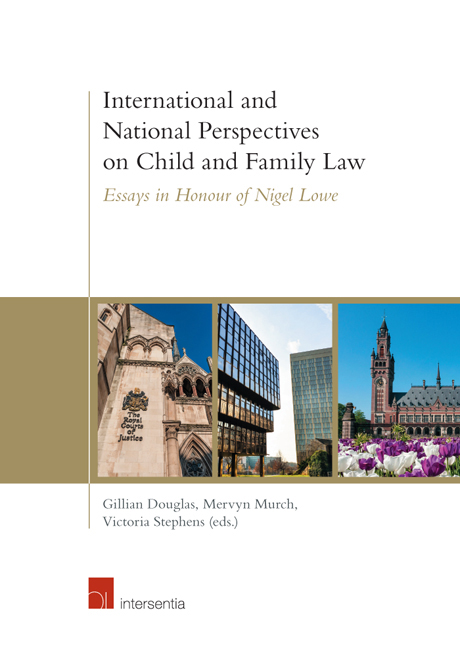Book contents
- Frontmatter
- Foreword
- Acknowledgements
- Contents
- List of Cases
- List of Contributors
- Introduction: Nigel Vaughan Lowe: An Appreciation
- Part I Family and Child Law in England and Wales
- The Supreme Court and Family Law
- The Development of Parent–Child Relationships in Family Law: The Cascade of Change
- Commitment-Based Parenting: Parental Responsibility in English Law
- Rights Children Should Not Have
- Empirical Research on Adoption of Children from Care
- Pathways to Adoption: From Long and Winding Road to Obstacle Course?
- Child Abuse and Public Inquiry Methodologies
- Lowe and the Inherent Jurisdiction
- Wards of Court
- Part II International Family Law
- Part III The Future for Family and Child Law
Wards of Court
from Part I - Family and Child Law in England and Wales
Published online by Cambridge University Press: 12 October 2018
- Frontmatter
- Foreword
- Acknowledgements
- Contents
- List of Cases
- List of Contributors
- Introduction: Nigel Vaughan Lowe: An Appreciation
- Part I Family and Child Law in England and Wales
- The Supreme Court and Family Law
- The Development of Parent–Child Relationships in Family Law: The Cascade of Change
- Commitment-Based Parenting: Parental Responsibility in English Law
- Rights Children Should Not Have
- Empirical Research on Adoption of Children from Care
- Pathways to Adoption: From Long and Winding Road to Obstacle Course?
- Child Abuse and Public Inquiry Methodologies
- Lowe and the Inherent Jurisdiction
- Wards of Court
- Part II International Family Law
- Part III The Future for Family and Child Law
Summary
Nowadays we tend – rightly – to think of Nigel Lowe as being, par excellence, an international family lawyer. Indeed, in that part of the Academy he stands preeminent, with an enviable international reputation. But we forget at our peril that, 40 or so years ago, he cemented his scholarly reputation with two outstanding books on two very different areas of domestic law. First, in 1973, and written in collaboration with Gordon Borrie, came Contempt of Court. Then, in 1979, and written in collaboration with Richard White, came Wards of Court.
These two works, albeit on very different subjects, had a number of things in common. Both dealt with highly technical topics. Both dealt with topics with a long and complex history, where knowledge and analysis of the historical hinterland was key to understanding and explaining the current law. Both dealt with topics where the existing literature was distinctly elderly. In 1973, the most recent work on contempt of court was the third edition of Oswald's Contempt of Court, published in 1910. In 1979, as Sir George Baker P pointed out in his Foreword to the first edition of Lowe & White, the only book of reference on wards of court was the fourth edition of Simpson on Infants, published in 1926. And both have stood the stern test of time.
Borrie & Lowe is now in its fourth edition, published in 2010. It continues to stand high in what is now, because of the popularity of the subject, a more populated field of legal publishing. Lowe & White, perhaps because wardship occupies a more specialised niche, has seen nothing more recent than the second edition, published in 1986. That is a matter of keen regret because, as I recently had occasion to remark, it remains ‘a book of high authority although we rejoice in the continued vigour of both its authors.’ Down the years I have on a number of occasions gently chided Nigel for his failure to produce what would be so valuable, an up-dated edition. I am always met with the characteristic, self-deprecating smile which, while not seeking to challenge the justice of my observation, indicates that it is unlikely to be heeded.
- Type
- Chapter
- Information
- International and National Perspectives on Child and Family LawEssays in Honour of Nigel Lowe, pp. 115 - 122Publisher: IntersentiaPrint publication year: 2018



